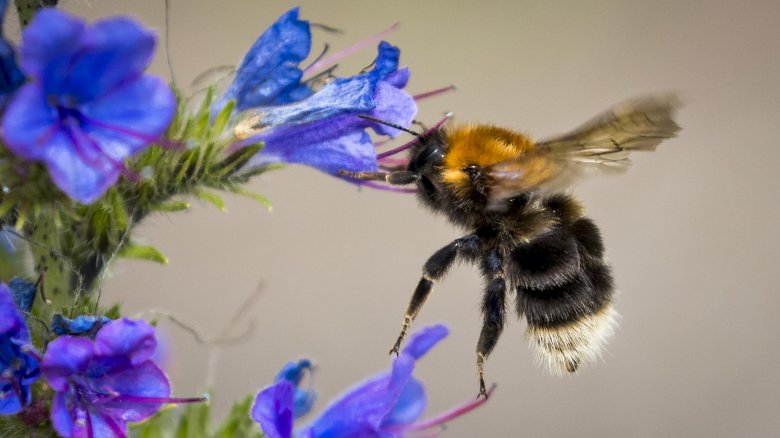What Would Happen If Bees Went Extinct?
We love bees. We love them so much that Jerry Seinfeld made a movie about them. The industrious little workers keep busy generating the world's supply of honey and inspiring folksy art the world over, but they're also a vital part of both our ecosystem and our economy. Without them we'd be in a sea of troubles.
The BBC states that bees pollinate about 70 of the 100 crop species that feed 90 percent of the world's population, worth more than $30 billion each year.
According to Brittanica there are about 20,000 species of bee, many of which are uniquely adapted to pollinate specific plant species as a result of coevolution, fitting their flowers like gloves. Unfortunately, the vast majority of these species are in decline due to factors including disease, insecticide use, global warming and habitat loss. The beloved honeybee is experiencing Colony Collapse Disorder on a grand scale, which the EPA describes as the "phenomenon that occurs when the majority of worker bees in a colony disappear and leave behind a queen, plenty of food and a few nurse bees to care for the remaining immature bees and the queen."
Brittanica goes on to describe a dystopian world where bees have died off, causing a rippling effect across ecosystems. Plant species exclusively pollinated by bees would die off, continuing a chain reaction of more extinctions and food web aberrations. Plants across the board would reproduce less, meaning less food and dietary variety for the global population.
Most human calories come from wind-pollinated cereal grains, so while we wouldn't starve without bees, we'd lose out on a ton of delicious fruits and veggies. At least a third of all food Americans eat is derived from bees in some capacity, according to the U.S. Food and Drug Administration, and Brittanica states that foods like blueberries and cherries rely on bees for up to 90 percent of their pollination.
In a nutshell, humans would survive, but our diets would suffer, and many other species would die as a result of dependence on bees as pollinators and food sources.
